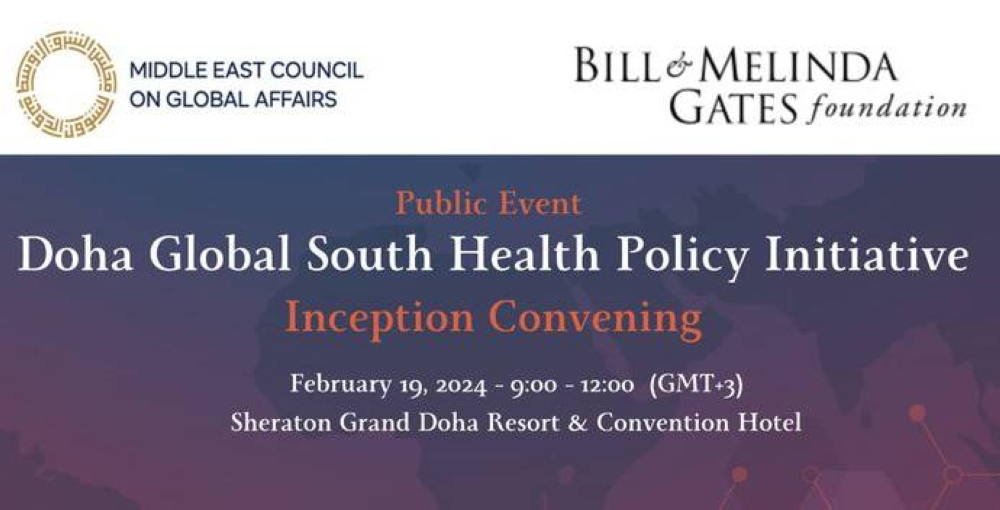For many years, the dialogue around health solutions has been influenced by donors and organisations from the Global North. A sense of mistrust has eroded collaboration among the global community and this dynamic has sometimes overlooked the valuable insights and priorities of health leaders from low-and-middle-income countries. In 2021, Strive Masiyiwa, a Zimbabwean businessman and philanthropist — and now a Bill & Melinda Gates Foundation trustee — said that rich countries’ behaviour during the pandemic perpetuated “a deliberate global architecture of unfairness.”
Through the Doha Global South Health Policy Initiative, we aim to offer health leaders from the Global South a new platform to voice their priorities and challenges and elevate the local solutions they have identified for programme implementation.
Global South health technical experts possess the knowledge and ability to significantly improve access to healthcare that, when shared and scaled, can lead to major advancements in health and development, even in the most remote and challenging environments. Investing in research, strengthening healthcare systems, and advocating for evidence-based policies are just a few examples of how we could further work together to improve health outcomes for the most vulnerable populations – and this exactly embodies the spirit of our gathering in Doha.
By launching this initiative, we aim to foster a knowledge sharing environment that focuses on scalable interventions in maternal, newborn, and child health (MNCH), expanding women’s healthcare services beyond MNCH, and managing the control or eradication of infectious diseases. Advancement in maternal and child health in the last decade, for instance, have led to low-cost and easy-to-implement innovations and practices that prevent and treat deadly childbirth complications such as post-partum haemorrhaging and maternal anaemia. Now, expanding access to these innovations could save up to 2mn mothers and babies globally by 2030 and 6.4mn by 2040. But this can only happen when health leaders and technical experts from all parts of the world can openly share knowledge and co-create solutions that resonate with their unique contexts.
Our goal is clear: to listen and to identify and address critical health challenges in a manner that fosters significant progress in low-and-middle-income countries, aligning with the Sustainable Development Goals (SDGs) focused on health equity and access. More than halfway to the deadline for the SDGs, the world is off track and there is an urgent need for translating our collective knowledge into tangible progress for all.
Under the leadership Qatar’s Ministry of Foreign Affairs, the country’s ability to bring together voices from the Middle East, Africa, and South Asia creates a unique platform for deepening understanding and cooperation on health practices that can transform communities and countries. Qatar, through the Qatar Fund for Development, has played a valuable role in recent years, including through the creation of the US$2.5bn Lives and Livelihoods Fund in partnership with the Islamic Development Bank, Saudi Arabia, the UAE and the Gates Foundation, which offers affordable financing to the Islamic Development Bank’s most vulnerable member countries to help them address critical needs, including combatting infectious diseases such as malaria and polio and ensuring routine immunisation.
As we convene in Doha, let us remember that this is more than a meeting; it is the beginning of a movement towards a more inclusive, equitable, and healthy world. This initiative is a call to action for everyone involved in global health: governments, international organisations, the private sector, civil society, and academics. Together, we have the opportunity to forge a new path in health collaboration, one that is led by the voices and needs of the Global South. The challenges ahead are significant, but so too is our collective resolve.
- Tarik M. Yousef, Ph.D, is Director, Middle East Council on Global Affairs
- Christopher J. Elias, MD, MPH, is President, Global Development, Bill & Melinda Gates Foundation

